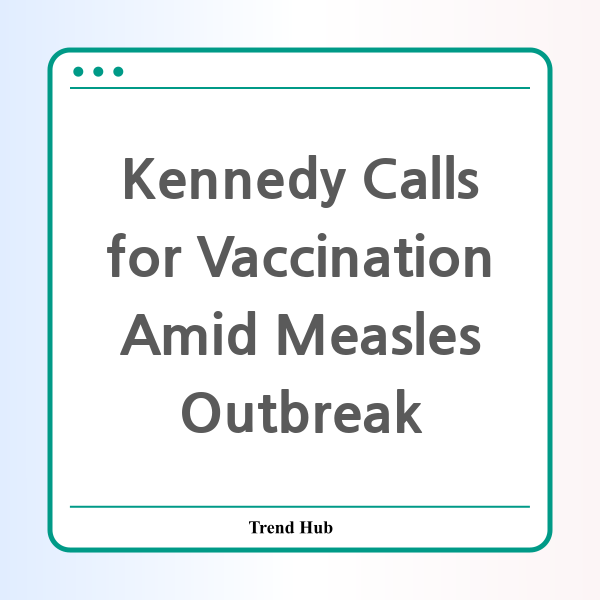* This website participates in the Amazon Affiliate Program and earns from qualifying purchases.

As a severe outbreak of measles spreads across the South Plains region of Texas, the call for vaccination has never been more urgent. With at least 146 confirmed cases, including the first measles-related fatality in over a decade, prominent figures like Robert F. Kennedy Jr. are emphasizing the importance of getting vaccinated to protect not only individual children but also the broader community.
The Texas Department of State Health Services (DSHS) has reported that the majority of affected cases involve children, with 116 of 146 cases in individuals under 18 years of age. Alarmingly, many of these cases involve unvaccinated children, highlighting the critical role that the measles, mumps, and rubella (MMR) vaccine plays in preventing outbreaks.
In an op-ed written by Kennedy, he stated that historically, before the introduction of the MMR vaccine in the 1960s, virtually every child in the United States contracted measles. During that period, the fatality rate was approximately 1 in 1,205 cases, a stark reminder of the risks posed by this highly contagious disease. The measles virus can easily spread through the air and is incredibly resilient, surviving on surfaces for up to two hours. This means that unvaccinated individuals are not only at risk but can inadvertently endanger those who are unable to receive vaccinations due to medical conditions.
Despite Kennedy's history of skepticism towards vaccinations, he urges parents to consult healthcare providers about the MMR vaccine, framing this situation as a collective call to action. He emphasizes that vaccines provide personal protection while contributing to community immunity, which is crucial for safeguarding those who are vulnerable.
Health and Human Services Secretary Robert F. Kennedy Jr. reinforced the need for vaccination amidst this outbreak, stating, "The decision to vaccinate is a personal one." While he acknowledged the necessity for parents to be informed regarding their options, he also highlighted the role of healthcare providers and policymakers in disseminating accurate information about vaccine safety and efficacy.
The concern surrounding this outbreak is compounded by falling vaccination rates, which have led to the resurgence of preventable diseases like measles. Public health experts assert that the current surge in cases can be traced back to areas with high vaccination exemption rates. As trust in public health initiatives fluctuates, the responsibility falls on both individuals and authorities to ensure comprehensive understanding of the benefits and safety of vaccinations.
The administration of vaccines, particularly the MMR vaccine, is seen as a pivotal measure in preventing potentially deadly diseases. As communities rally to combat this outbreak, it's clear that vaccination is not just a personal choice but a collective responsibility to protect the health of our communities. As Kennedy urges, it is time for everyone to reaffirm their commitment to public health.
The stakes are high, and the potential consequences of the current measles outbreak serve as a critical reminder of the importance of vaccines. Engaging in open discussions about vaccination with healthcare professionals can significantly impact the ongoing battle against measles and help restore trust in essential public health measures.
* This website participates in the Amazon Affiliate Program and earns from qualifying purchases.